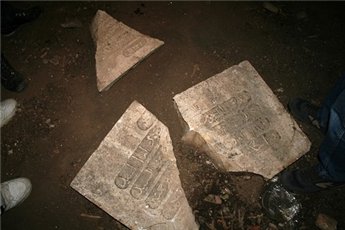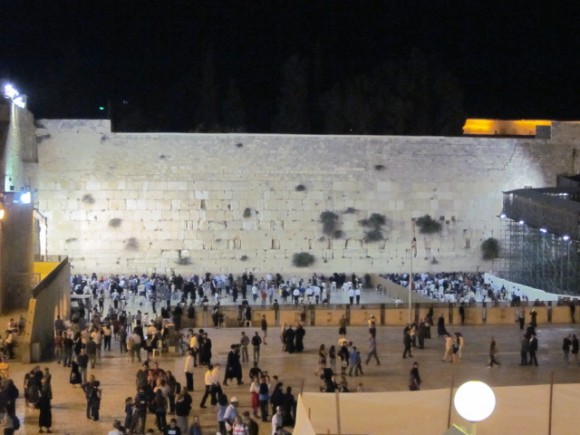It is amazing to me how, in the process of writing a narrative, one discovers meaning. Let me tell you the story of how I have processed the Mamilla experience so to identify the violence that most moved me that evening.
Yesterday, for the first time since I’ve been here, I awoke without hope. Neither my readings and prayers nor a delicious Middle Eastern breakfast helped. Seeing what hatred looks like had drastically disoriented me.
A filmmaker friend of mine asked me for ten minutes. Thinking he wanted to have a cup of coffee and sit outside, I silently nodded and followed him out of the room. Instead of seeing coffee, I saw that he had his camera set up. We sat down and he said this:
“You look noticeably different today…as though something very dark and heavy shadows your soul. Can you tell me about it?”
He pressed record and I started to tell the story of Mamilla.
As an experiential storyteller, I choose to relive the story as I tell it. I felt the sweat on my forehead from the long walk, I smelled the soil of Mamilla, and I saw the eyes of the Israeli kids with guns.
Military service is mandatory here. Immediately following high school graduation, boys and girls must serve in the Israeli defense. Their boot camp experience involves a deep understanding of their narrative which, sadly, is not the ancient narrative of the Hebrew Scriptures. Rather, it is the very contemporary narrative of their demise in the Holocaust, the International reparation in the giving of the land of Palestine to Israel in 1948, and their military conquests of 1967 and beyond. “Never again” is the national slogan: indoctrinated kids with guns is their solution.
It was in the storytelling and seeing their eyes again that I recognized why I was so disoriented and why “something very dark and heavy” shadowed my soul: my heart didn’t break for these kids. Violence, I discovered during my interview, was being done to my perspective of me.
Ethicist, Theologian, and Provocateur Stanley Hauerwas calls himself a pacifist because he knows what a “violent son of bitch” he is. I resonate more deeply with his sentiment now, yet I long for my language to be something like this: I am a peacemaker because I am moved by my Rabbi into the way of creative love.
There is pain in the experience of living between who I am and who I want to become. Grace accompanies the pain.

